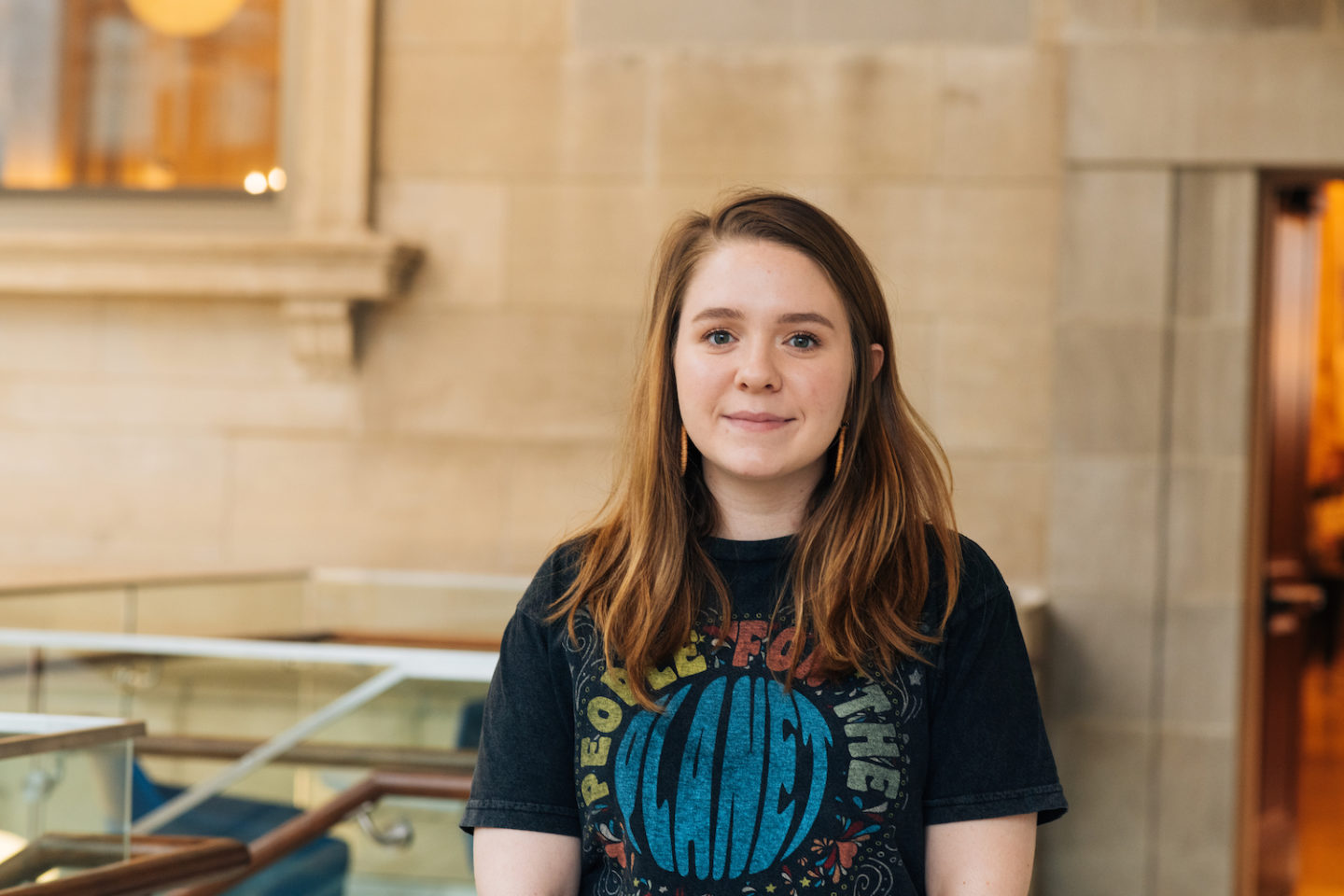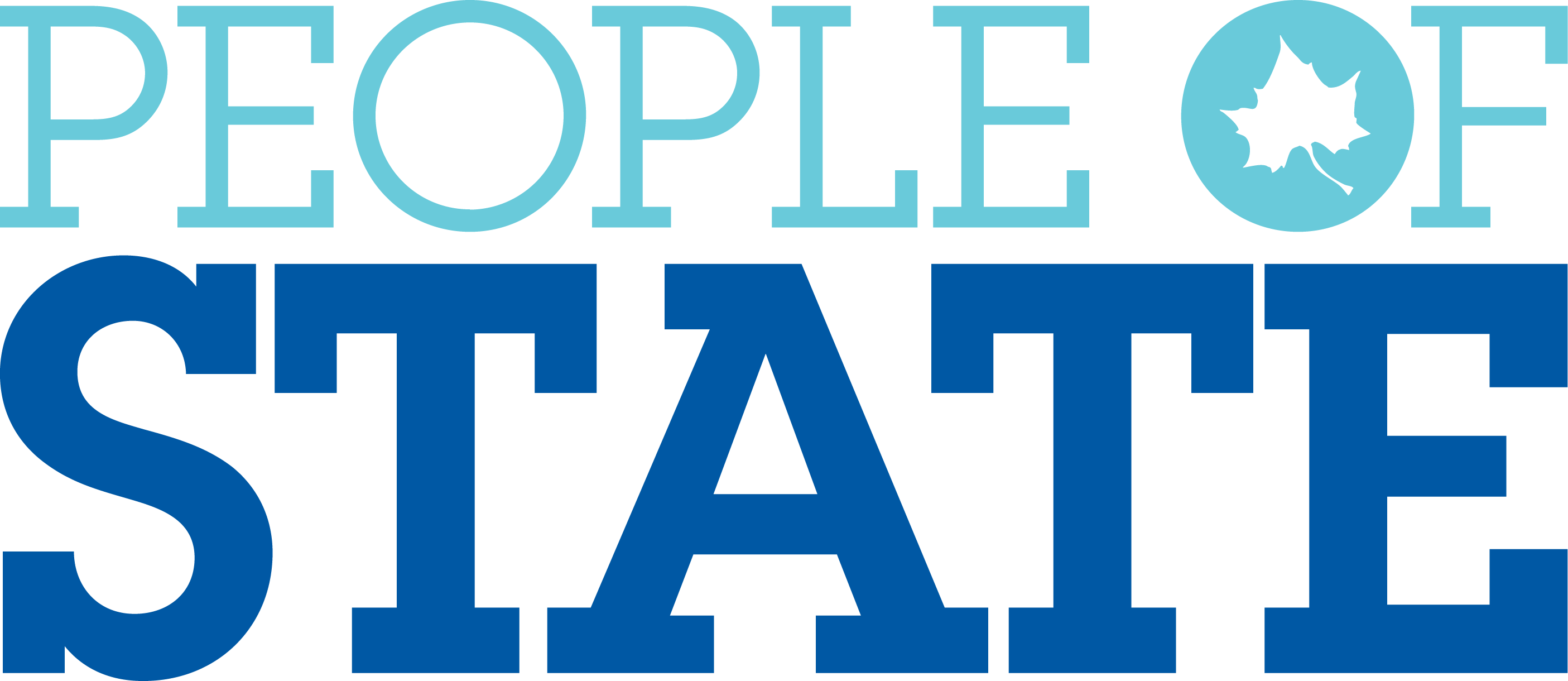
Ashley Baysinger
By Indiana State University
Mar 4, 2020
From the moment Ashley Baysinger stepped foot in Yellowstone Park, she knew that something needed to be done to save the great wonders of the world. If something wasn’t done, the beautiful and fascinating marvels we love about Earth would disappear. The need to do something was pressing because, if she didn’t do something, who would? “It’s on me,” she said.
Having made the decision to make change in the world, Baysinger decided to major in subjects that would aid her in her goals: anthropology and geography with a concentration in sustainability. As she got more into studies about the planet and what can be done to sustain its resources, Baysinger learned that there are three pillars to sustainability: the environment, the economy, and the people. This made her think more deeply about how people’s cultures and history should be sustained and inspired her to become the first Indiana State University student to minor in museum studies.
“It’s the want to make the world better for the next generation – that’s the driving force behind everything.”
As the pioneering student of the museum studies minor, Baysinger had flexibility and avenues to travel that many students do not typically have. “It’s really cool,” she explains, “because I’m kind of shaping [the minor] with every class I’ve taken.” She was able to give professors feedback on what was helpful in their courses and what kind of information and activities furthered her knowledge in Museum Studies best. Furthermore, Baysinger was eventually offered the opportunity to become a liaison between the Indianapolis Children’s Museum and ISU.
There, she helped the collection care manager catalogue artifacts stored in the archives and get a peek into what that side of museum life is like. She learned about the laws behind showcasing artifacts and artwork from specific cultures. Since some groups, such as certain Native American tribes, have cultural rules and traditions that disagree with allowing museums to show and photograph cultural pieces that come from their family and ancestors, each artifact presents an ethical dilemma.
According to Baysinger, throughout recent years, the museum environment has begun to practice better ethics. Still, there is much to be done, “In the past, things have been messed up [in ethical ways], and I want to be part of changing it,” Baysinger states. Plus, she has a general fondness for museums and the work they do there, “I love museums. I’ve always loved going to museums. I think it’s a form of education that kids are more into, even kids who hate school like museums.” This passion for the goodness of museums and the ways in which they can improve is why she one day wishes to do anthropology research in a museum and participate in the reformation of museums’ ethical standards. No matter what Baysinger chooses to do in the future, it will be something that makes a change.
For any Sycamores who also want to change the world: “Don’t be scared to ask,” Baysinger says, “If you want to do something, just ask someone. And the people here, students and faculty and staff, they’re more than willing to help – 10 times out of 10. I’ve honestly never met anyone who wasn’t willing to help me. Be brave enough to ask for help.”

